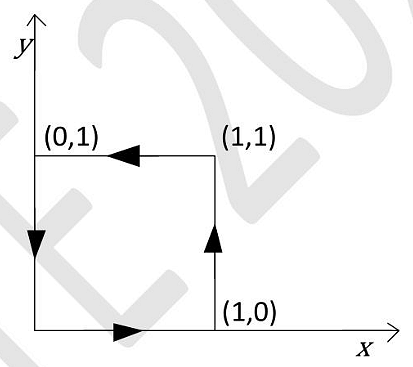Which of the following is true?
- Φ = 0
- n(Φ) = 0
- Φ = {0}
- n(Φ') = 0
The Correct Option is B
Solution and Explanation
To solve the problem, we need to identify the correct statement related to the null set (empty set).
1. Understanding the Symbols:
- $ \phi $ denotes the null set (an empty set with no elements).
- $ n(\phi) $ denotes the number of elements in the set $ \phi $.
2. Analyzing Each Option:
(1) $ \phi = 0 $ → Incorrect, because $\phi$ is a set, not a number.
(2) $ n(\phi) = 0 $ → Correct, because the number of elements in the null set is 0.
(3) $ \phi = \{0\} $ → Incorrect, because $\phi$ is an empty set, but $\{0\}$ is a set containing one element: 0.
(4) $ n(\phi') = 0 $ → Incorrect, as $\phi'$ usually refers to the complement of $\phi$, which is not defined without a universal set.
Final Answer:
The correct statement is $ \mathbf{n(\phi) = 0} $.
Top Questions on Sets
- Mode of the data \( 19, 2, 6, 12, 12, 3, 5, 6, 18, 14, 6, 17, 2 \) is:
- The mean and mode of 5, 3, 9, 1, 9, 8, 9, 4 are m and n respectively, the value of m+n is?
- If A = {1, 2, {3, 4}, 5}, then which of the following is incorrect?
- If A and B are the two sets containing 3 and 6 elements respectively, then what can be the maximum number of elements in A∪B?
- For \(\vec{F}=(x+y)\hat{i}+(x+y)\hat{j}\) the value of \(\oint\vec{F}.d\vec{r}\) along the path shown in the figure is ________. Give your answer as an integer.

Questions Asked in TS POLYCET exam
- The number of elements present in the fifth period of the modern periodic table:
- TS POLYCET - 2025
- Modern Periodic Law And The Present Form Of The Periodic Table
- The volume of CO\(_2\) liberated in litres at STP when 25 g of CaCO\(_3\) is treated with dilute HCl containing 14.6 g of HCl is:
- TS POLYCET - 2025
- Chemical Reactions
- Which one of the following processes involves chemical change?
- TS POLYCET - 2025
- Chemical Reactions
- If \( A \) is the set of odd numbers less than 6 and \( B \) is the set of prime factors of 30, then:
- TS POLYCET - 2025
- Magnetic Field
- If \( A = \{1, 2, 3, 4, 5\} \) and \( B = \{1, 3, 5, 7\} \), then \( n(A \cap B) = \dots \):
- TS POLYCET - 2025
- Magnetic Field